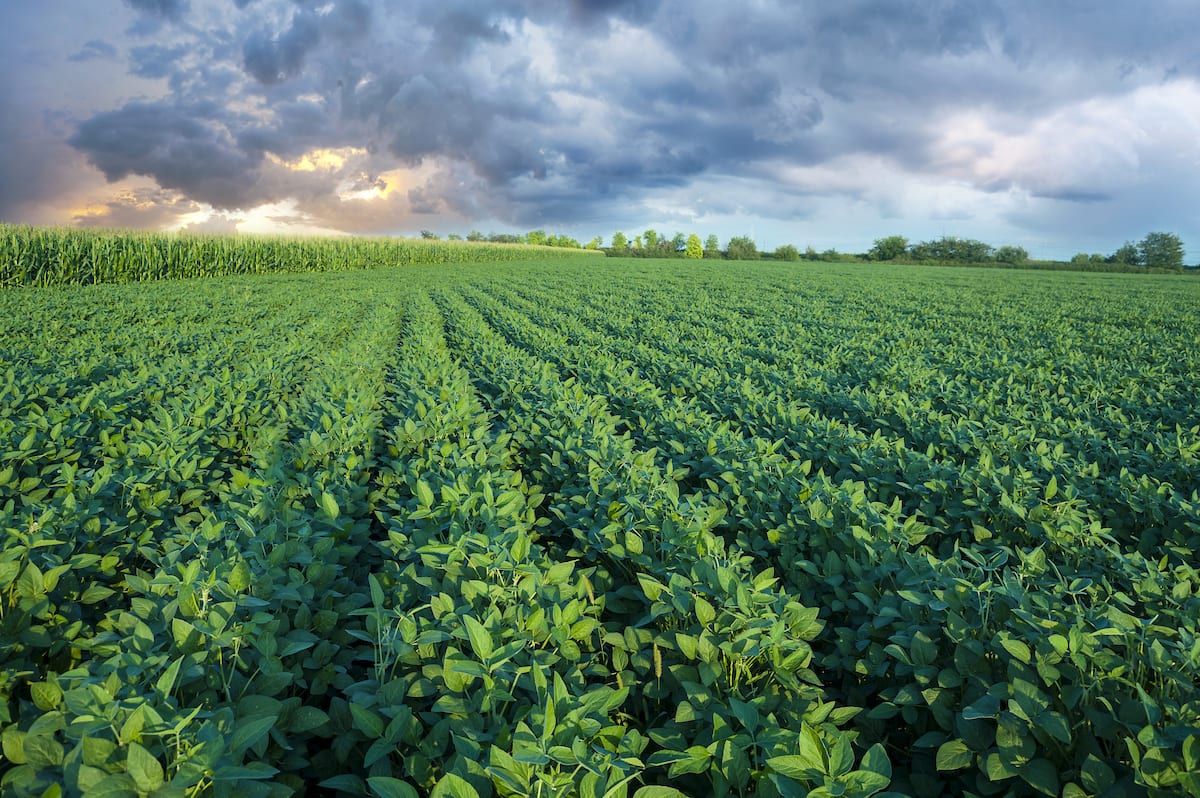St. Louis, Missouri, USA
November 12, 2020

Plastomics Inc., an agricultural biotech start-up developing the next generation of trait delivery technology, has been awarded a competitive grant from the United Soybean Board (USB) to develop disease resistant soybeans. Plastomics’ novel trait delivery system harnesses the natural powerhouse of the cell – the chloroplast – to efficiently build higher yielding crops to help farmers nourish the growing global population.
“Fungal diseases are a major threat to soybean production causing more than $4 billion of crop losses per year in the U.S. alone. With support from USB, we will use our chloroplast delivery technology to make soybeans that are resistant to economically important soybean fungal diseases,” says Jeffrey Staub Ph.D., Founder and Chief Scientific Officer of Plastomics, “We will leverage our innovative technology to help create a competitive advantage for U.S. soy growers.”
The work at Plastomics will be completed in collaboration with Dilip Shah, Ph.D., associate member at the Donald Danforth Plant Science Center, who is well known for his research related to developing solutions for fighting fungal diseases that infect plants.
“The USB-funded work at Plastomics provides out of the box thinking and presents a new solution to help soybean growers fight fungal disease resistance,” says Tom Oswald, United Soybean Board Director from Cleghorn, Iowa. “The soy checkoff looks at multiple angles to solve or reduce problems for farmers. This investment will protect plant health while increasing yields normally lost to diseases – ensuring continued profitability to U.S. soybean growers.”
Plastomics’ novel trait delivery technology provides a more efficient and sustainable way to add valuable traits, enabling crops that better withstand the pressure of insects, disease and weeds, while delivering higher yields. Plastomics’ technology simplifies product development and reduces the time and cost to bring biotech crops to market. Crops previously unable to take advantage of the benefit of biotech traits will now have access owing to the elimination of outcrossing concerns from pollen. Crops developed with the Plastomics’ platform will provide benefits across the value chain, including consumers, growers, and seed producers.
About United Soybean Board: United Soybean Board’s 78 volunteer farmer-directors work on behalf of all U.S. soybean farmers to achieve maximum value for their soy checkoff investments. These volunteers invest and leverage checkoff funds in programs and partnerships to drive soybean innovation beyond the bushel and increase preference for U.S. soy. That preference is based on U.S. soybean meal and oil quality and the sustainability of U.S. soybean farmers. As stipulated in the federal Soybean Promotion, Research and Consumer Information Act, the USDA Agricultural Marketing Service has oversight responsibilities for USB and the soy checkoff. For more information on the United Soybean Board, visit unitedsoybean.org.
About Plastomics Inc.
Plastomics is a plant biotechnology company making safer and more effective crops by delivering valuable traits to the chloroplast – the natural powerhouse of the cell. Plastomics is committed to using its technology to produce wholesome affordable food in an efficient and sustainable way. Plastomics is located in St. Louis, Missouri in the center of the 39 North Innovation District and adjacent to the majority of farms and food producers of America’s Heartland. This press release reflects the views and opinions of Plastomics Inc., not United Soybean Board.
About The Donald Danforth Plant Science Center
Founded in 1998, the Donald Danforth Plant Science Center is a not-for-profit research institute with a mission to improve the human condition through plant science. Research, education and outreach aim to have impact at the nexus of food security and the environment, and position the St. Louis region as a world center for plant science. The Center’s work is funded through competitive grants from many sources, including the National Institutes of Health, U.S. Department of Energy, National Science Foundation, and the Bill & Melinda Gates Foundation. Follow us on Twitter at @DanforthCenter.